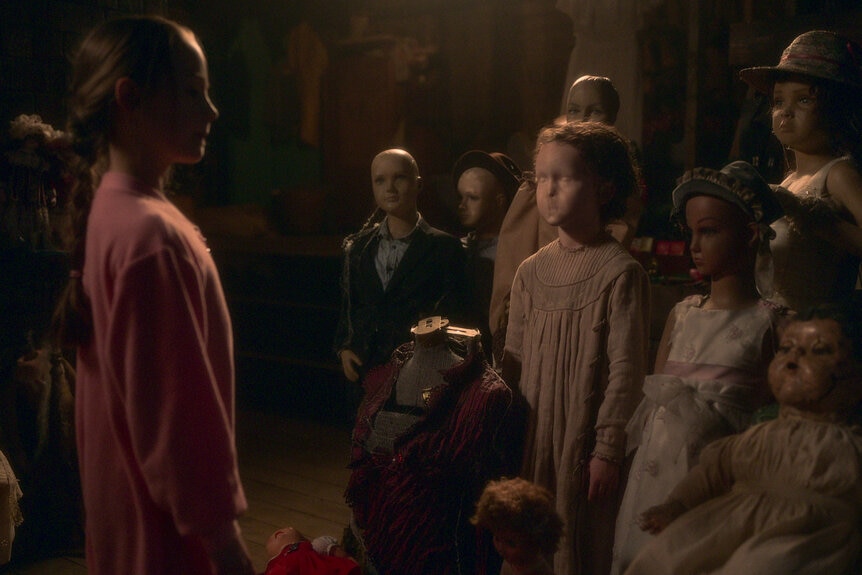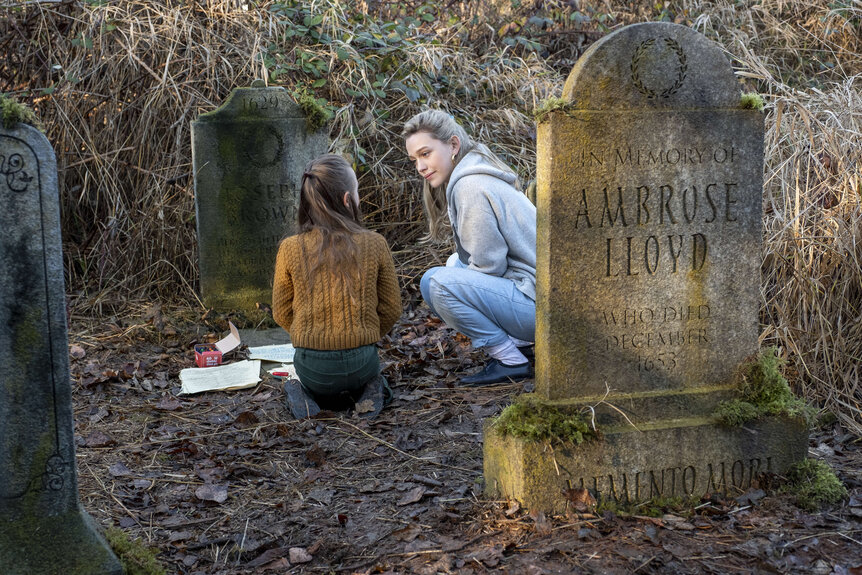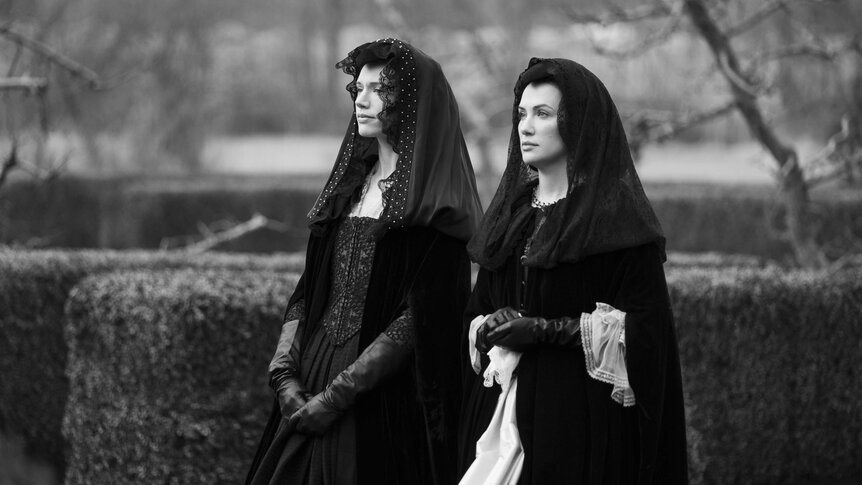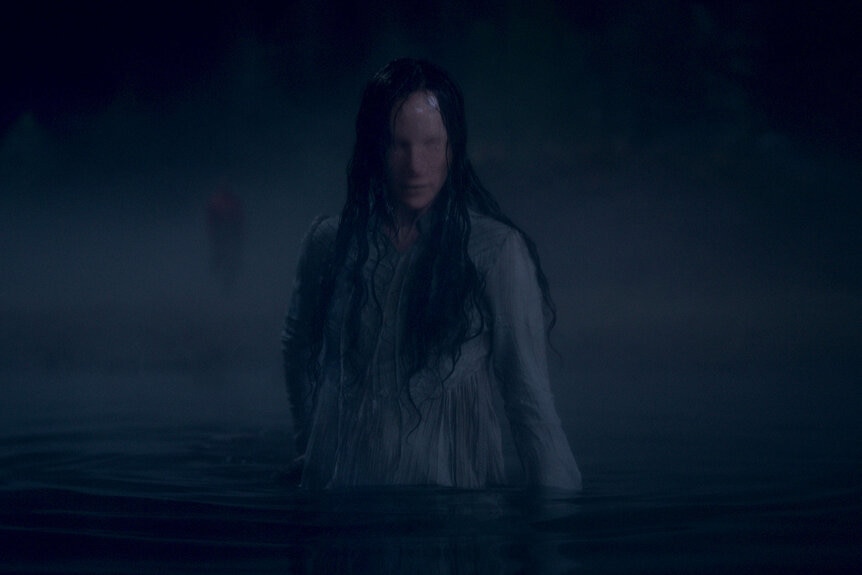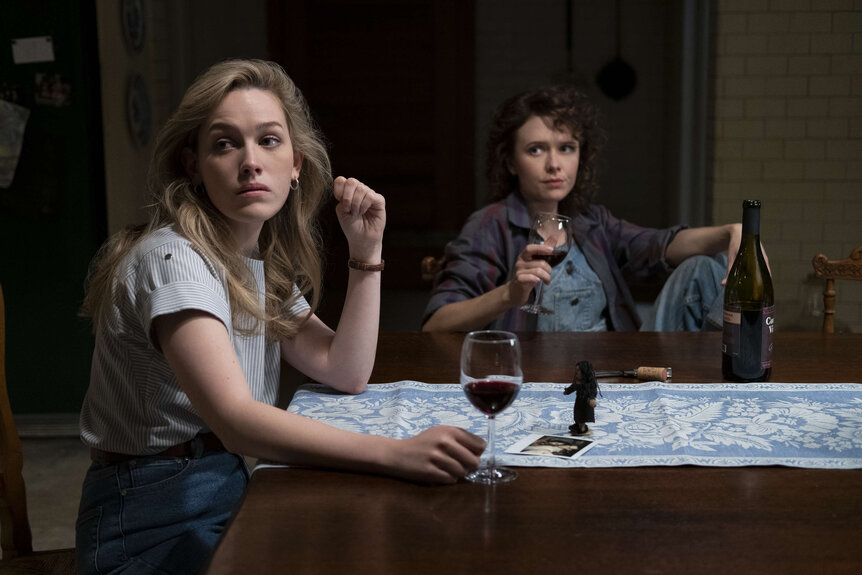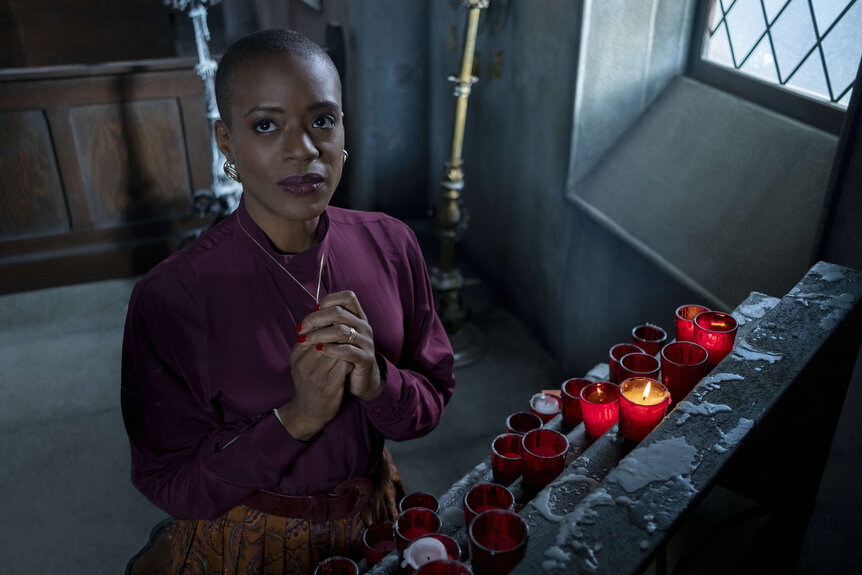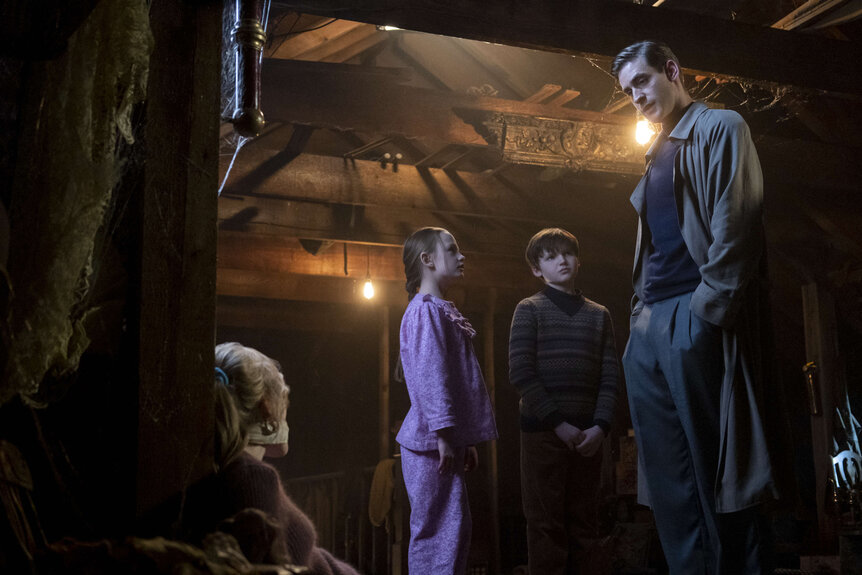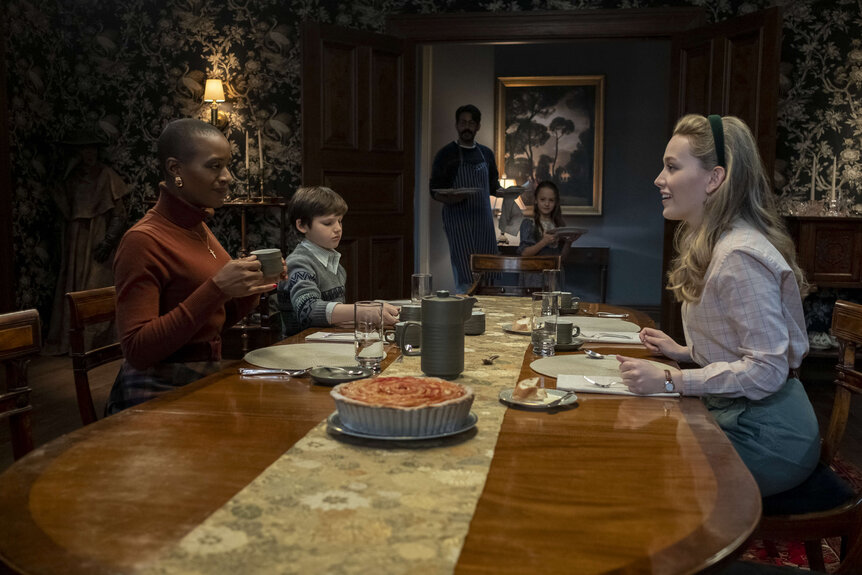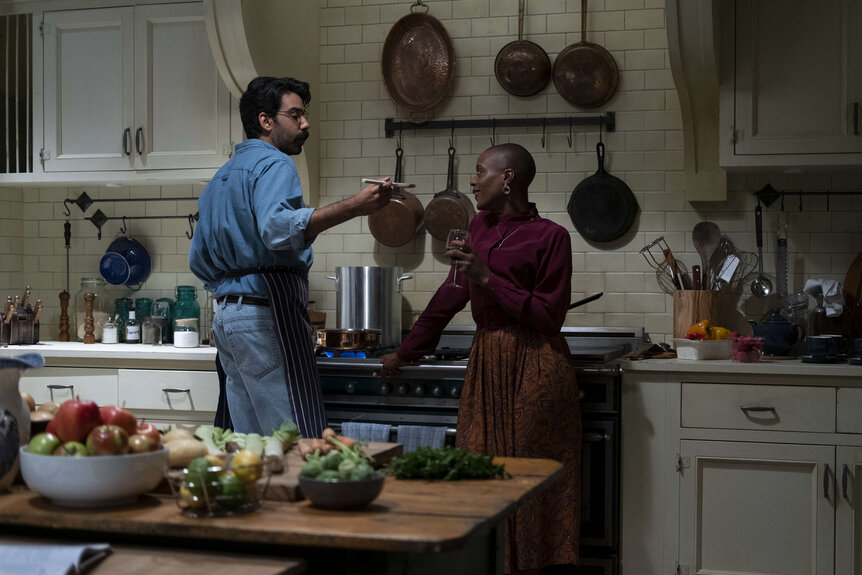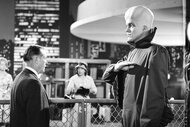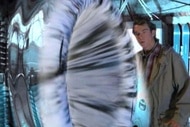Create a free profile to get unlimited access to exclusive videos, sweepstakes, and more!
The Haunting of Bly Manor captures the horror of forgetting and being forgotten
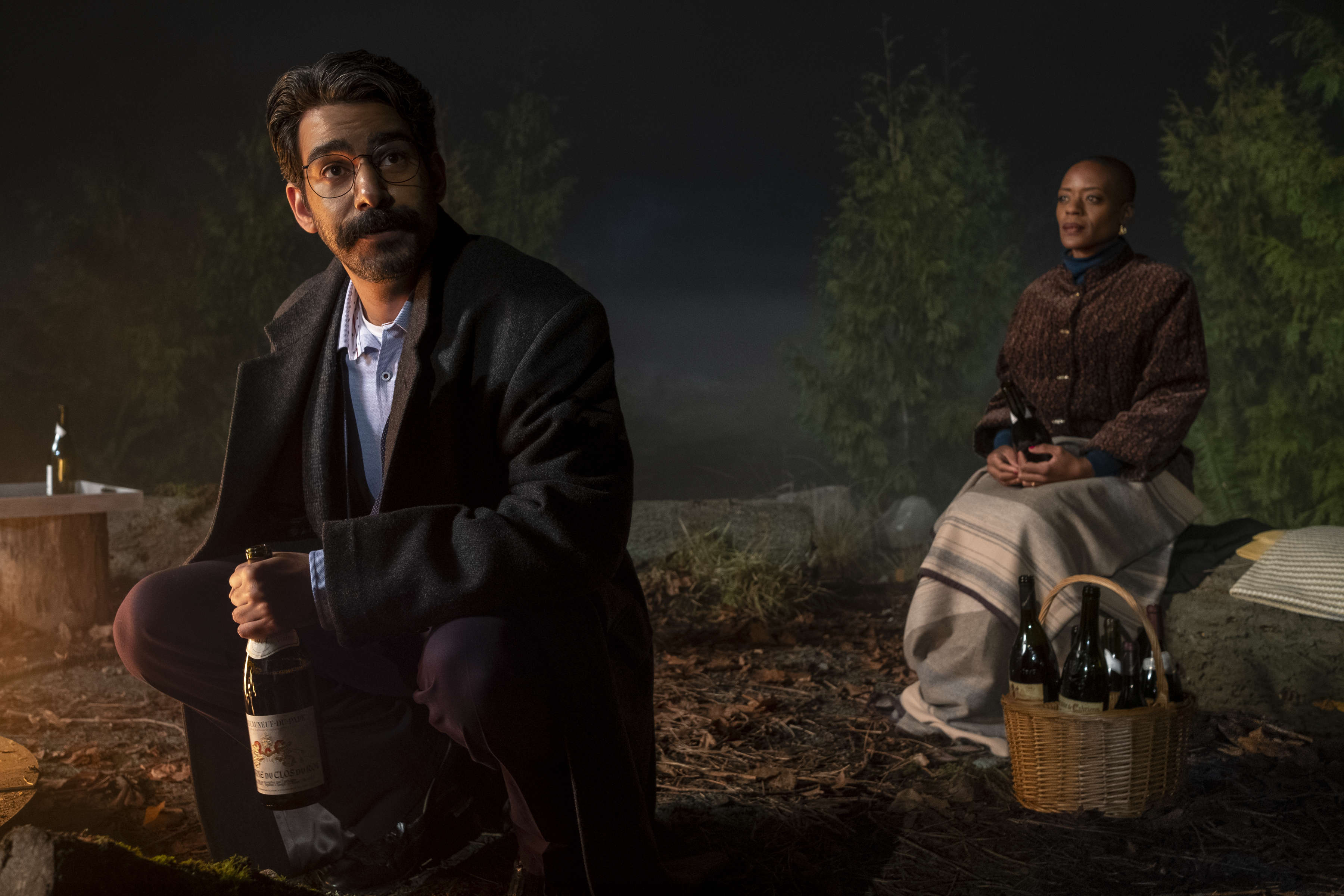
"All things fade. All things. Flesh, stone, even stars themselves. Time takes all things. It is the way of the world. The past recedes, memories fade, and so, true, does the spirit. Everything yields to time, even the soul."
The Haunting of Bly Manor's narrator gets to the scary heart of Mike Flanagan’s follow-up to Hill House in the penultimate episode, which tells the backstory behind the various specters seen throughout the series. Things that go bump in the night are terrifying, but being lost to time is more than an existential crisis.
Spoilers ahead for The Haunting of Bly Manor.
Memory is a central theme weaving its way across the season. The wandering souls of the dead are not the only ones that haunt the living, and the current Bly inhabitants deal with a range of ghosts from dead exes to recently deceased parents, in addition to the killer spirits we expect in horror. The exploration of remembering and remembrance extends to illness and what it means to lose someone before they die. From the waking nightmare of Owen's mother's dementia to the appearance of the faceless ghosts, The Haunting of Bly Manor is a thoughtful look at what makes us human. We cannot control when we will die, but there is hope we will leave something behind that captures our essence. Paintings will long hang on a wall and heirlooms passed down to the next generation, but tangible possessions are hollow without context. The Lady in the Lake is a terrifying embodiment of the monster that is forgetting.
In a home as grand and old as Bly Manor, many memories linger in the shadows. A whole wing is off limits, which contains not only the belongings of the deceased Wingraves but also the jewels that belonged to Viola Willoughby all those centuries before. Draped in protective cloth, this part of the manor is an out-of-bounds museum to the dead.
A chapel and a small cemetery act as physical markers, but little is known about the former inhabitants whose remains (and souls) are a permanent fixture beyond the graves. Public records would help identify who these people were but won't tell you anything about what made them unique — the legacy of Viola and her sister Perdita has been lost to the annals of time.
"The Romance of Certain Old Clothes" is based on the Henry James short story of the same name, which Flanagan connects to the history of Bly Manor. Whereas The Turn of the Screw — the novella on which the series is also based — delivers an inconclusive ending regarding the existence of ghosts, there is no such ambiguity in this story that was first published in 1868. Flanagan's series offers up a supernatural explanation rather than a psychological one, as ghosts are very much part of the fabric rather than a case of madness or an allegory for the past.
Paintings that hang over the twin grand staircases are far from the only way the Willoughby sisters have left their mark. Perdita lies among the other forgotten toys and artifacts that have been stored away in the attic, communicating in muffled tones to Flora. The basement is also full of discarded dolls and the ghostly figures who reside among the living. As with Hill House, if you look into the negative space of a frame or hidden behind furniture you might be able to see one of the permanent residents.
Flanagan has revealed that he intended to do a similar origin story for the ghosts in Hill House, but the budget did not allow for it. For Bly Manor, he got his wish and faceless terrifying Lady in the Lake was not always this way. While answers to the spooky goings-on reduce the scare levels, this episode does expand on the theme of memory. One drawback is this late in the game explainer does slow the momentum of the series — and the episode itself is too long — but it is also an extension of the bonfire conversation after Owen’s mother’s funeral that highlights the importance of memorializing someone.
The appearance of these ghosts is what happens when there is no one left to remember. "As her memories left her, so, too, her face," the narrator — revealed to be an older Jamie in the finale — describes as Viola transforms into the deadly Lady in the Lake.
Other than her sister, every murder the Lady commits is not fueled by anything other than the burning rage at what became of her after years of waiting for her daughter to open the trunk of clothes. She had given strict instructions regarding the valuable heirloom that her sister disobeyed — hence the first act of violence from beyond the grave. This trunk was thrown into the bottom of the lake because her daughter and husband feared it was cursed. Without a legacy to pass on to her child, she is left to sleep and walk the grounds of the home that is no longer hers. But even without someone in her bloodline taking the ancestral manor, there is no escaping Viola’s firm grip if you are unfortunate enough to walk in her path. Maybe she has been forgotten in the traditional sense, but the damage she has done stretches across the centuries.
If Hill House is about the shattering and trauma faced by one family, then Bly Manor takes a more sprawling approach to guilt and grief. The 1987 occupants have been hired to look after Miles and Flora, but form a deep bond that connects them long after the events of this terrifying period. Dani and Jamie fall in love, and when they visit Owen in Paris, he explains that Miles and Flora have forgotten the particulars. "The details, the specific moments, the ... the fear of it all that we were so afraid would infect the rest of their lives has just ... faded away. And all that's left is the shape of it." Forgetting isn't always a bad thing.
As children, Miles and Flora's memories are turned into a sanctuary, but being "tucked away" is a form of manipulation used by Peter Quint as a method to escape his fate. When Peter takes over Miles' body he commits various deadly acts, including pushing Hannah Grose to her death down a well. She lights candles for those who have passed on without realizing she is lighting the fourth for herself. In the extraordinary episode "The Altar of the Dead" — also named after a James short story — fragments of Hannah's Bly Manor experience intersect to create a non-linear map of good and bad interactions. She even "dream hops" into other people's recollections, which begins to create a fuller picture of the Bly gravity pull.
Hannah gets caught in a loop of her own memories so tight she is unaware she has died until Peter as Miles tells her in Episode 7. "While your face melts away like some forgotten memory" is part of his colorful description of her inescapable fate, but unlike Peter, Hannah will live on in the memories and work of those who love her. She didn't get to be Hannah Grose in Paris, but her picture takes pride of place on the wall of Owen's restaurant. Toasts are given in her name, stories get passed down, and Hannah Grose will live as long as those who loved her reminisce.
Flanagan's portrayal of memory decay takes a physical form. He explained this is a representation of the physical act of dying coupled with the notion that we also die when we are forgotten, "that as their own memories fade, and people's memories of them fade, the ghost kind of physically fades, all the stuff goes away, but their memories become less and less reliable." The ghosts of Bly are in various stages of this process, and the rules of how long the face-melting this will take are unclear — unlike in Beetlejuice, there is no "Handbook for the Recently Deceased" in the Bly library.
Having spent the last year plotting his escape, Peter Quint refuses to let his very handsome face get lost to time. His half-baked plan to take over Miles' body full-time means convincing the child and his sister to actively participate. Peter promises they will reside in the "forever home" with their deceased parents, tucked away in memories before they died abroad. And while this is a place without pain or fear, it is a projection of their parents rather than the real people. To live in memory is not living.
Reliving the past is also a form of denial, which Hannah comes to understand when she keeps returning to the first time she met Owen. This looping memory takes pride of place because of how he made her feel. Furthermore, the Bly kitchen is the heart of the home and the source of happy recollections that underscores that it doesn't have to be a grand once-in-a-lifetime moment to have an impact. Everyday interactions are just as important, and the sound of someone's laugh is as indelible as what you wore at your wedding.
Food is a source of remembrance, whether the recipes passed down or the gesture of making someone's favorite meal. Hannah doesn't forget what Owen told her about the Marmite special ingredient in the shepherd's pie gravy — a trick Owen learned from his mother. He even names his restaurant A Batter Place after a Bly kitchen memory that centers Hannah. Cooking is what brought him back to Bly when his mother's dementia took hold. He applied for the chef job so he could earn a wage while caring for her. In Episode 4, he explains that she would forget who he was or what year it was, mistaking her son for her own father.
"She was gone long before she died, and I miss her. She was my anchor, and then I suppose she was my burden," Owen tearfully comments about the death of his 67-year-old mother. One of the most terrifying things that can happen to a person isn't a murderous ghost but an illness that claims our memories. The flattening of her personality is another aspect Owen begrudges about the eulogy she was given at the church; his alternate version during this intimate bonfire gathering is honest and beautiful. Rahul Kohli's performance in this scene is heartbreaking, and this is one of the most memorable and touching scenes of the series, which expands on the notion of death before dying and our legacy after.
"We can't count on the past. We think we have it trapped in our memories, but memories fade and they're wrong. Any of us could die at any moment, or we could forget our entire lives, which is kind of like dying" is also part of Owen's post-funeral epiphany. Considering his mother's illness, it is not surprising to hear his melancholy take on existence. Bly Manor would suggest that his assessment is right, but it also proves the opposite. Yes, Hannah dies and Dani is later lost to the lake, but tangible monuments like gardens, photographs, and the restaurant ensure memories are kept alive.
Storytelling is an act of remembrance and remembering, which is what Jamie is doing — even if she doesn't call anyone by name. Love is a powerful force, and those moments between Jamie and Dani are too strong to be broken by death. "Leaving the only trace of who she once was in the memory of the woman who loved her most" is Jamie's parting gift. Time and forgetting are not monsters to be feared.
